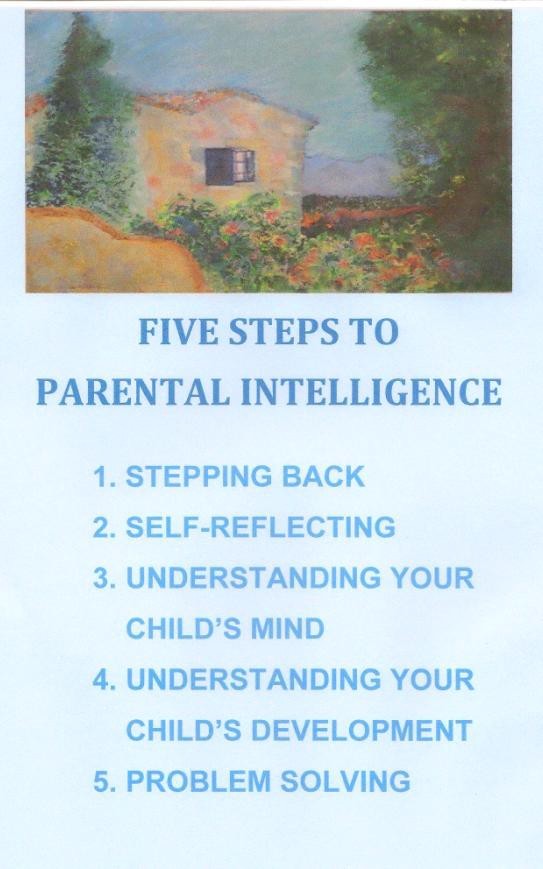During and after the holidays parents find their kids’ sometimes unruly behavior burning them out even though they wish to be devoted and loving. Here are some tips to combat feeling worn out as a parent.
When kids are home for long stretches of time during the holidays, parents find themselves weary of trying to keep relationships positive. Puzzling behaviors, minor squabbles, rivalries for parents’ attention, and little time for oneself leads to loosening the strong positive parent-child/teen connections that we all strive for.

- When there is puzzling behavior use the tools of Parental Intelligence to find solutions. First, Step Back, and don’t react or overreact at the first glance of troubling behavior. Begin to look for patterns that clue you in to what’s going onj.
2.Self-Reflect on what feelings these behaviors engender in you. Do you feel angry, upset, disillusioned, confused, saddened? Use these feelings to help you understand why you are reacting to your child’s behavior this way. Now you are on your way to become a parent “meaning-maker” learning to read your child’s behavior.
3.Think of behavior as a communication to you when words aren’t available or don’t suffice. Your job as a parent is to decode the message the behavior or action is sending. With this orientation, your child’s behavior feels less disorienting or even threatening. Your child or teen is trying to tell you something even if it’s in an impulsive manner.
4.Ask yourself, “What’s on my child’s mind?” Try to have a discussion to learn your child’s point of view, opinions, and beliefs and you will discover their hidden intentions. They may be imagining something negative is going on between the two of you, that wasn’t expected.
5.Pay attention to gestures, voice tones, facial expressions as your child tries to tell you what’s on his or her mind. Sometimes body language speaks louder than words.
6.Consider your child’s stage of development. This is different than their chronological age. They may be socially more mature or immature than their peers and need support in getting along with others. If we over expect them to carry on socially, for example, when they don’t understand the cues of social behavior, we may misconstrue their actions when they need guidance.
7.Again, thinking of their stage of development, each child learns at their own pace. To chastise them for low grades when they aren’t capable of achieving what others in their grade accomplish, we’ll just make them feel like failures and create low self-esteem. Find them a tutor to bring them up to speed and praise them for what they do accomplish at their own speed.
8.Now that you understand some of the problems underlying the original misbehavior, problem solving becomes easy. Problem solving should be a collaboration so the child feels you have faith in their ideas and solutions. Make a plan to work out the difficulties step by step always keeping in mind what the message was that your child was sending with his or her behavior.
9.The main goal is the parent-child relationship. Keeping that in mind builds your connection and build trust and faith in each other.
10. Now you’ve become a meaning-maker, understanding the reason your child behaved as he did and finding the underlying problems that prompted his actions.
These steps are what I call using Parental Intelligence. For the weary parent, these tools and attitudes can reorient your approach to child rearing for a life time. Your child will become a complex thinker who doesn’t just act and expect a speedy reaction from you, but a child who knows that his parents want to understand him and make general living positive and growth-promoting.
Remember to ask yourself three questions when you are worn out or burned out as a parent:
“Why do children do what they do?”
”What’s on their minds?”
“How can parents know their child’s inner world?”
Each question brings you closer to your child and builds your relationship.
Laurie Hollman, Ph.D. is a psychoanalyst and author of Unlocking Parental Intelligence: Finding Meaning in Your Child’s Behavior found on Amazon, Barnes and Noble, Familius and wherever books are sold — a great read for the new year.
Originally published at medium.com


